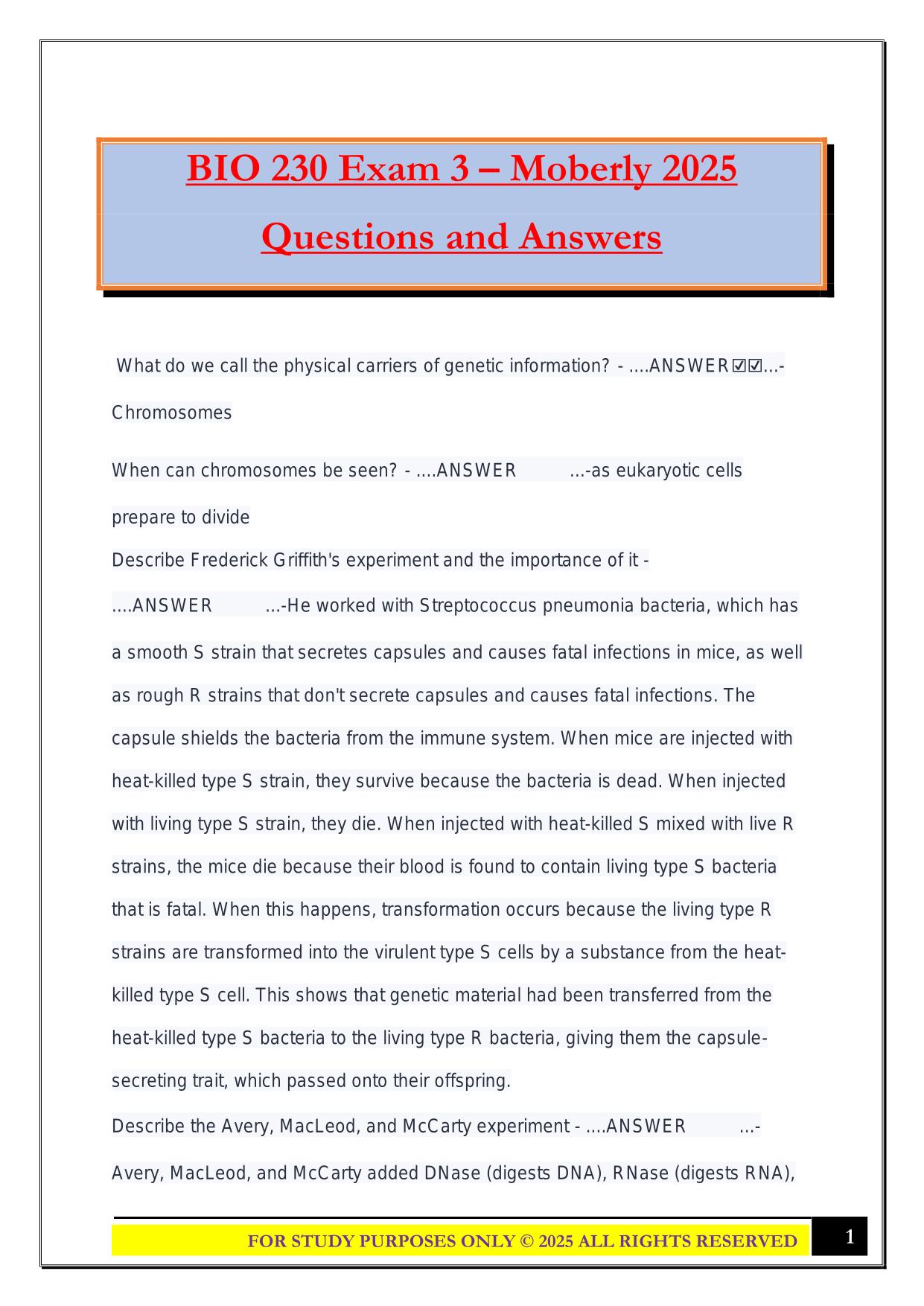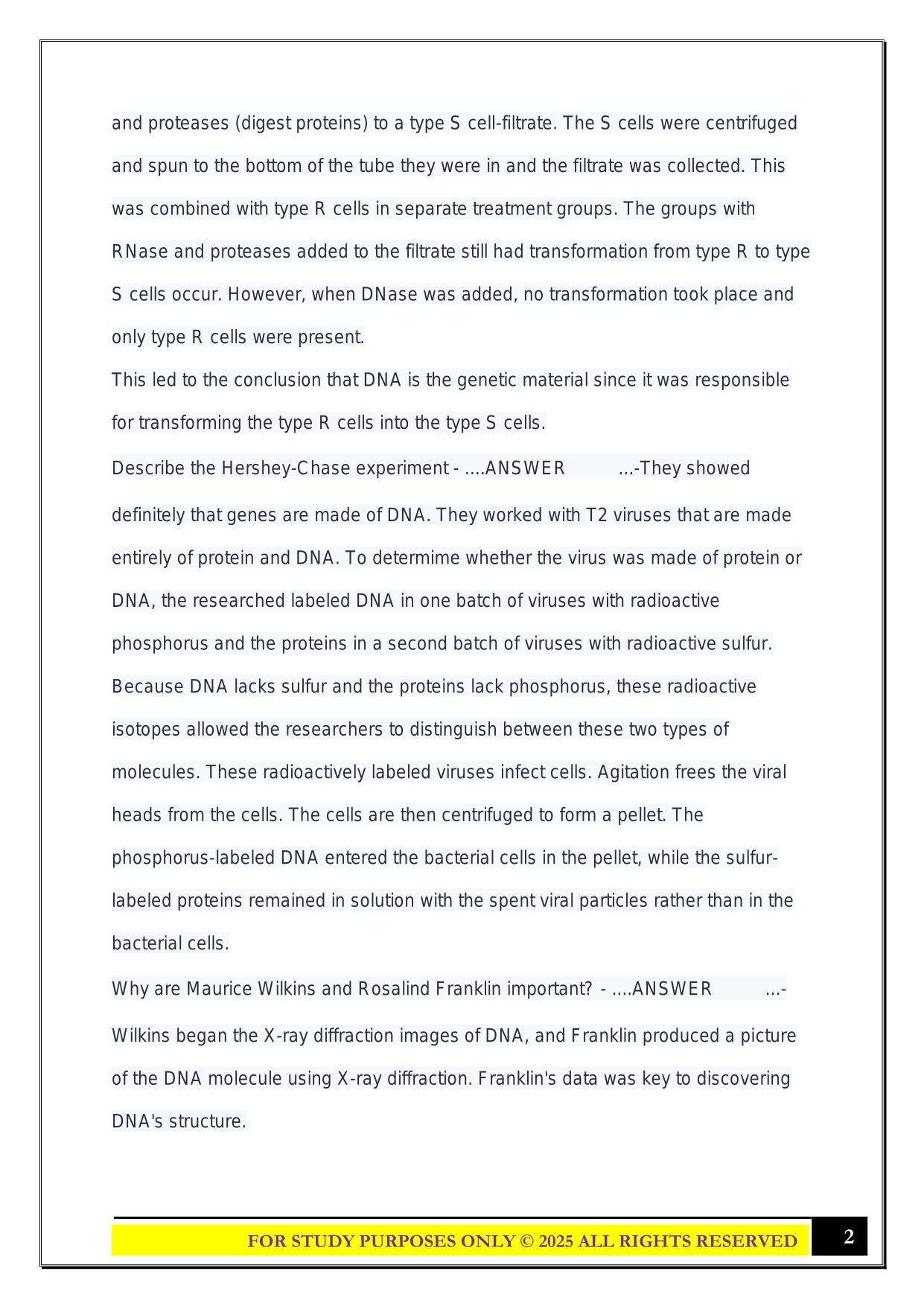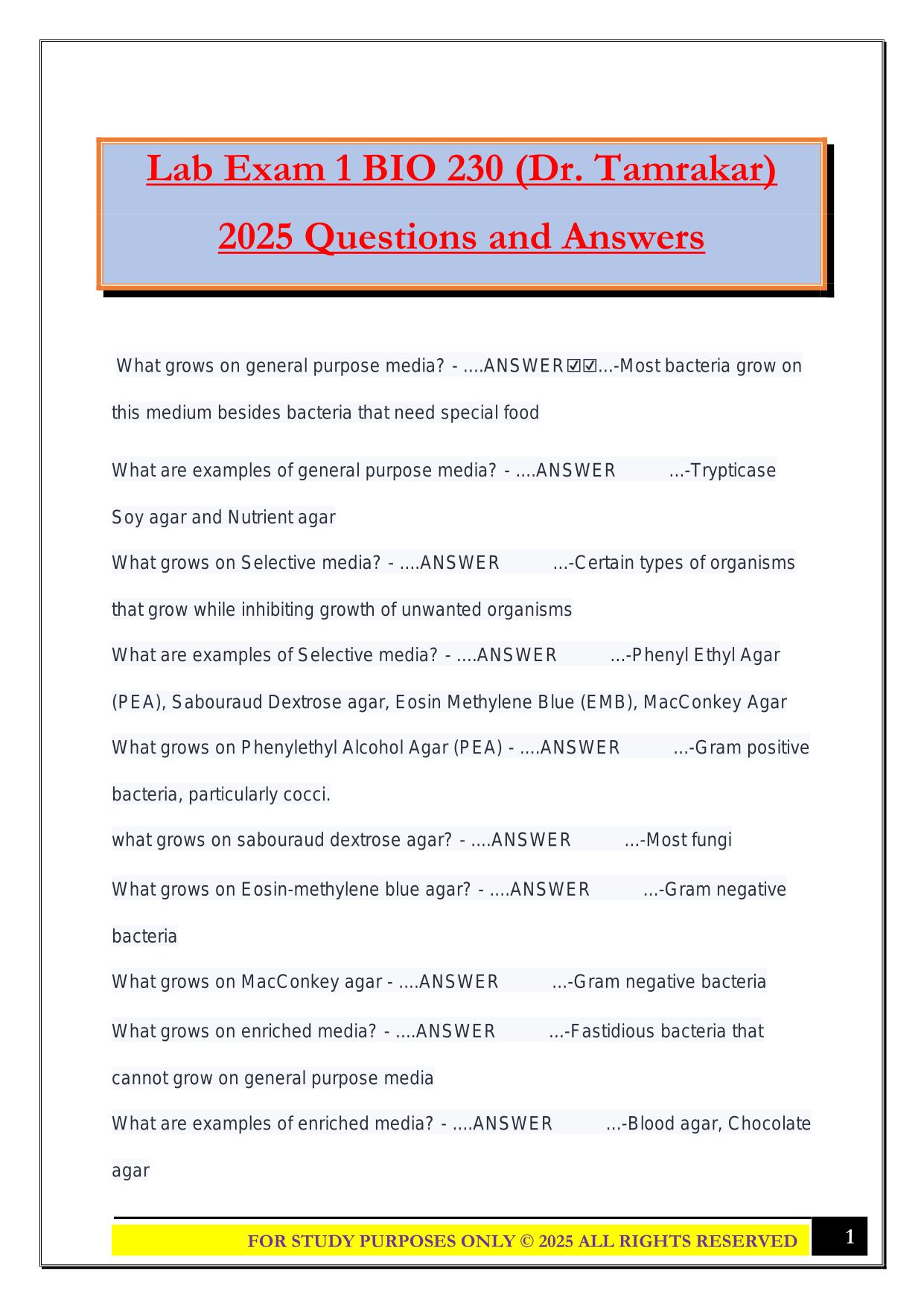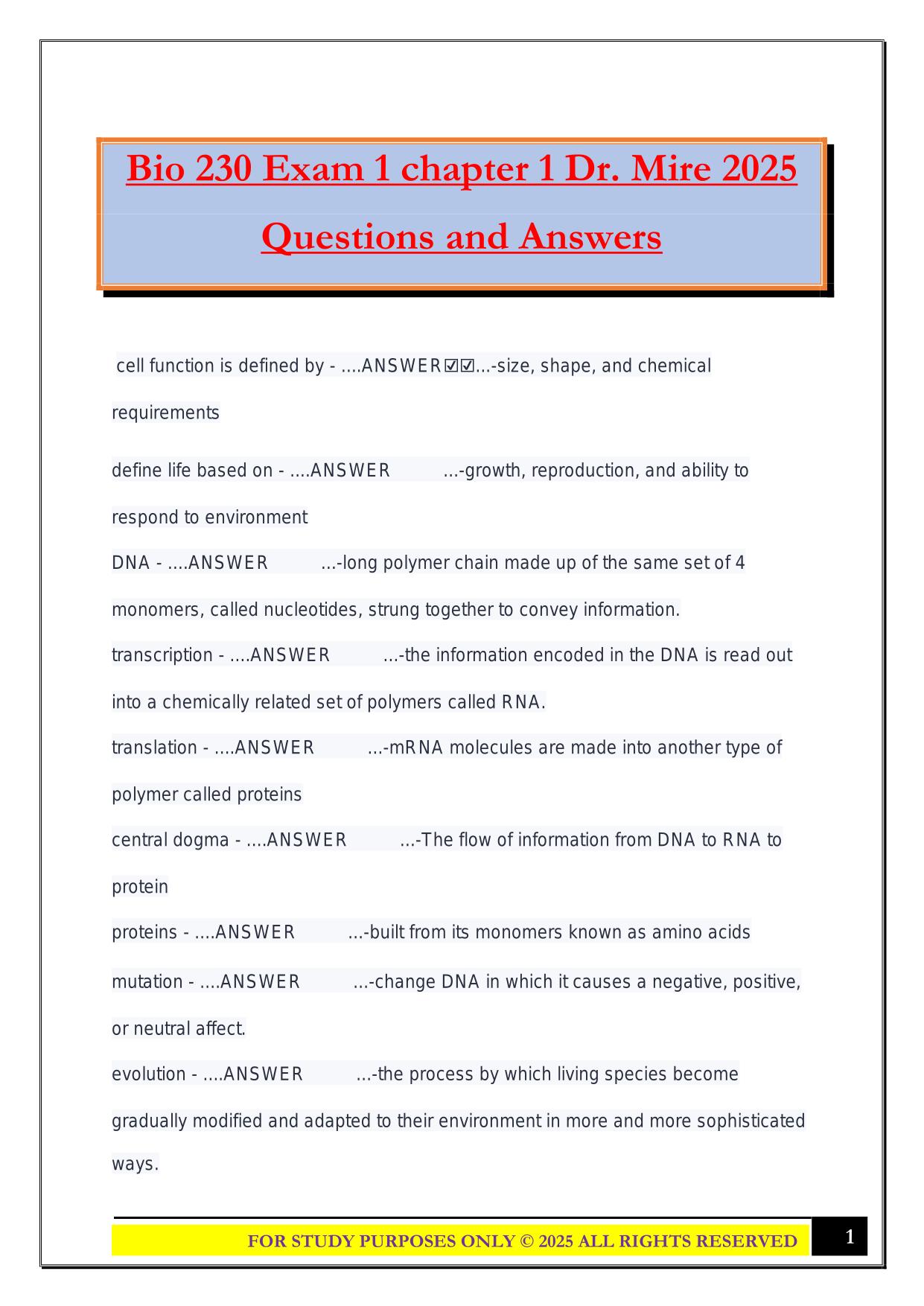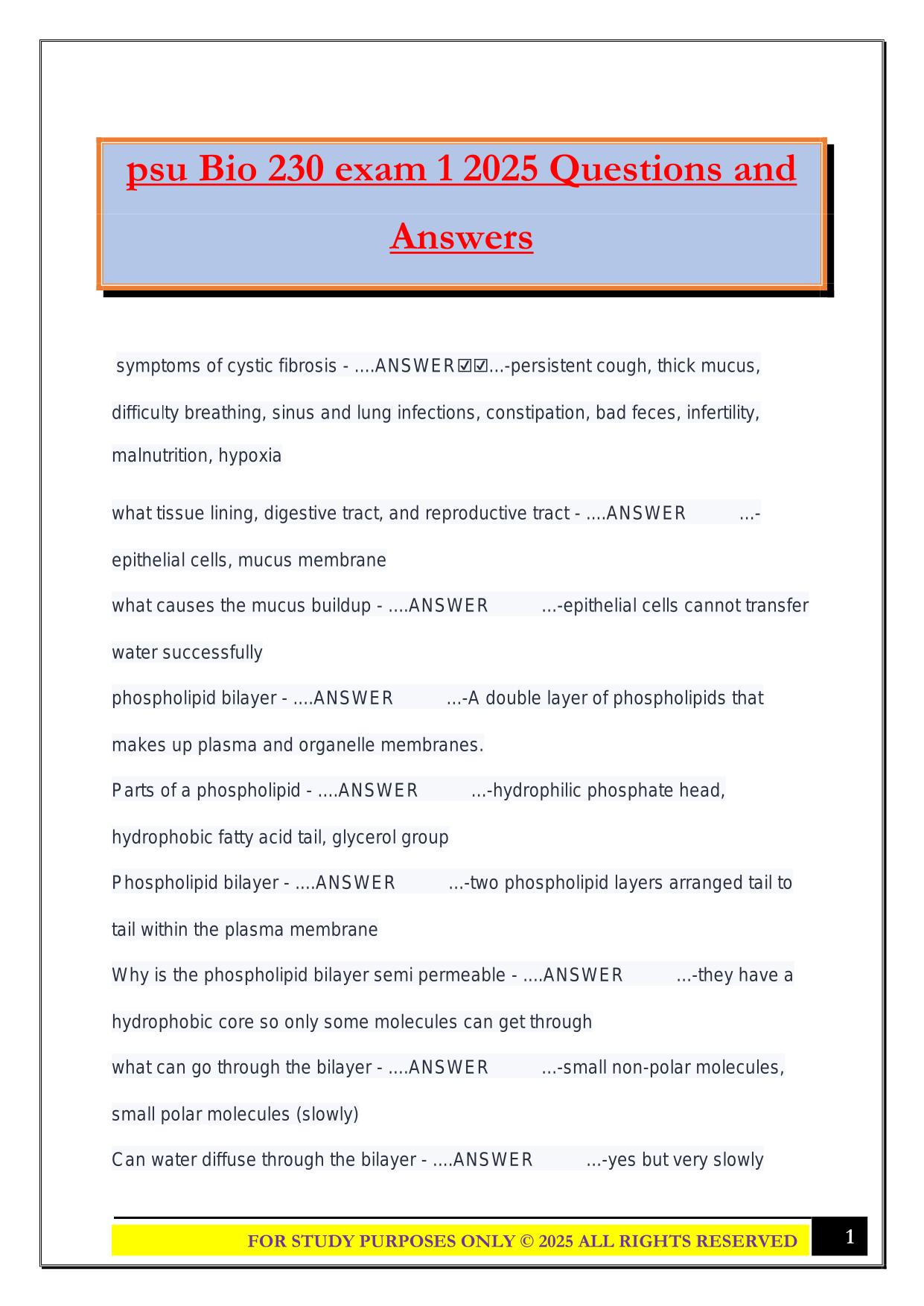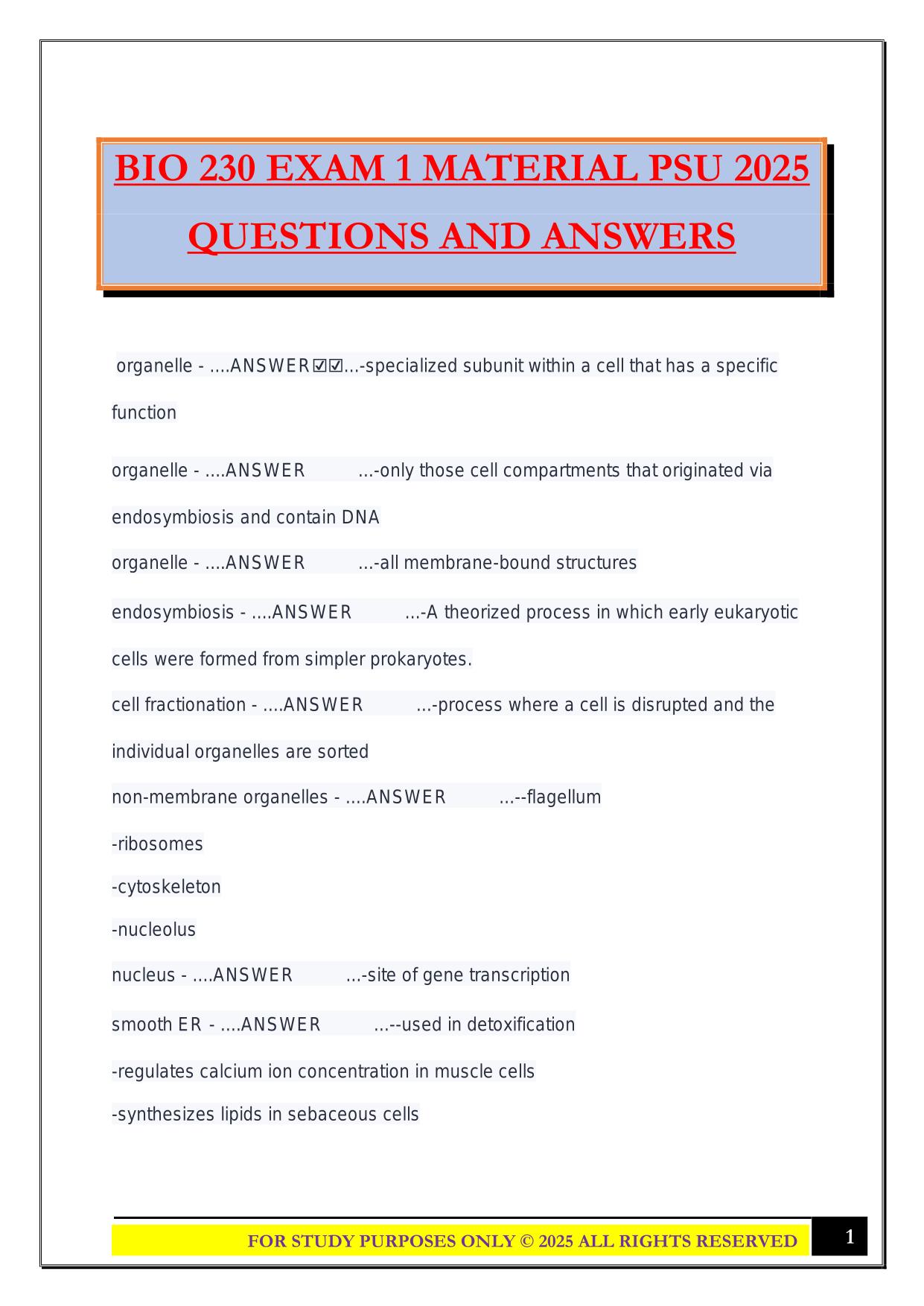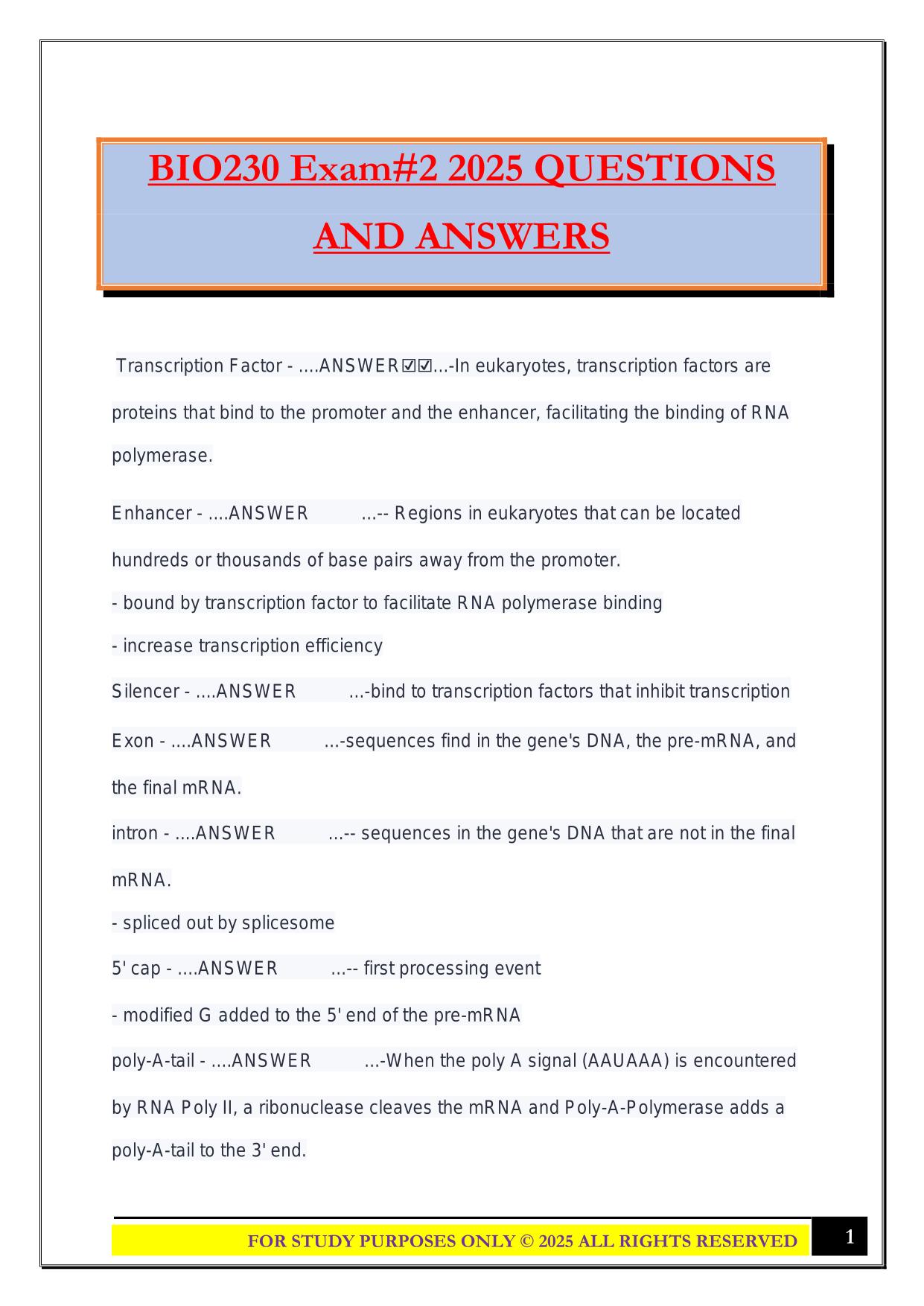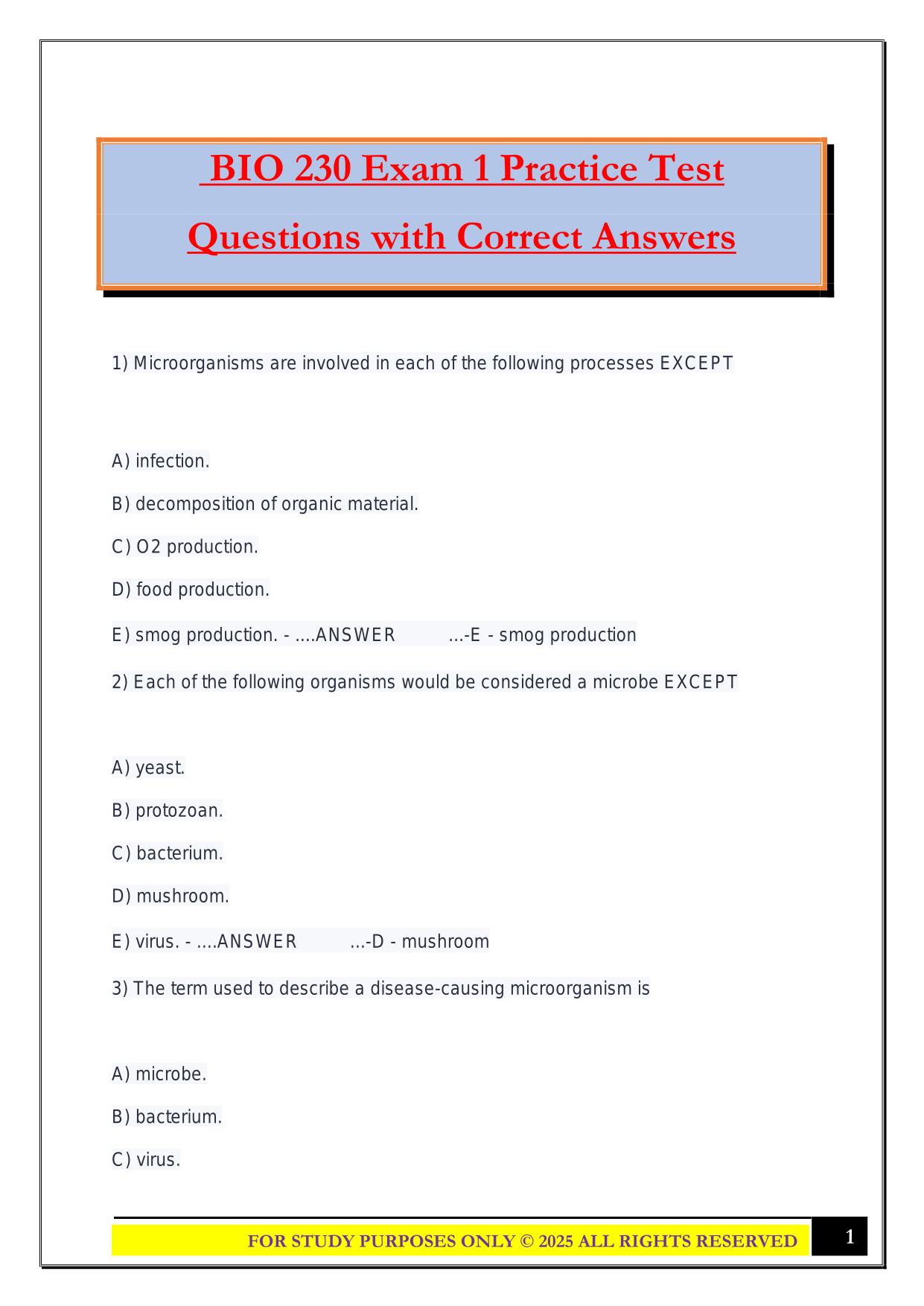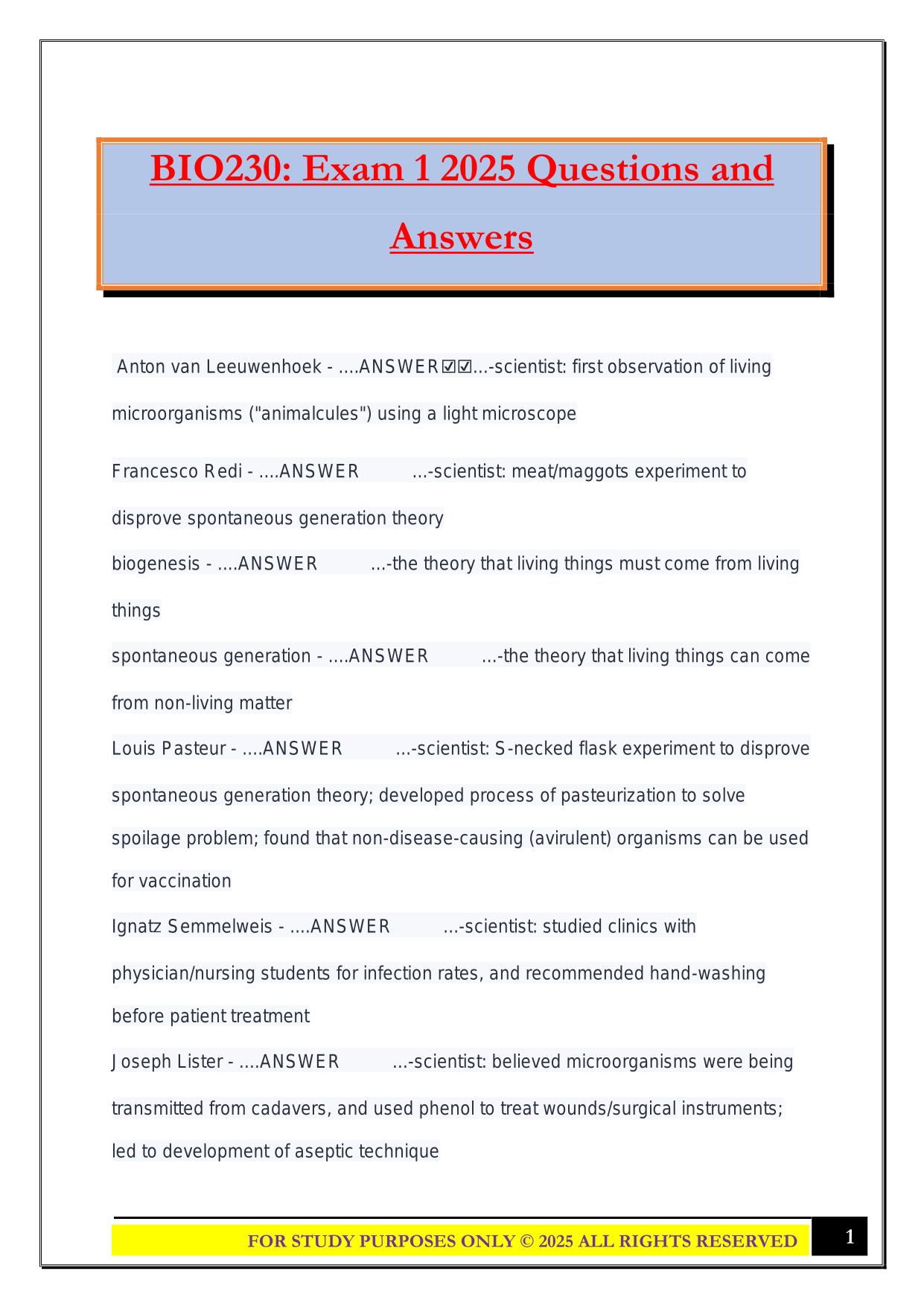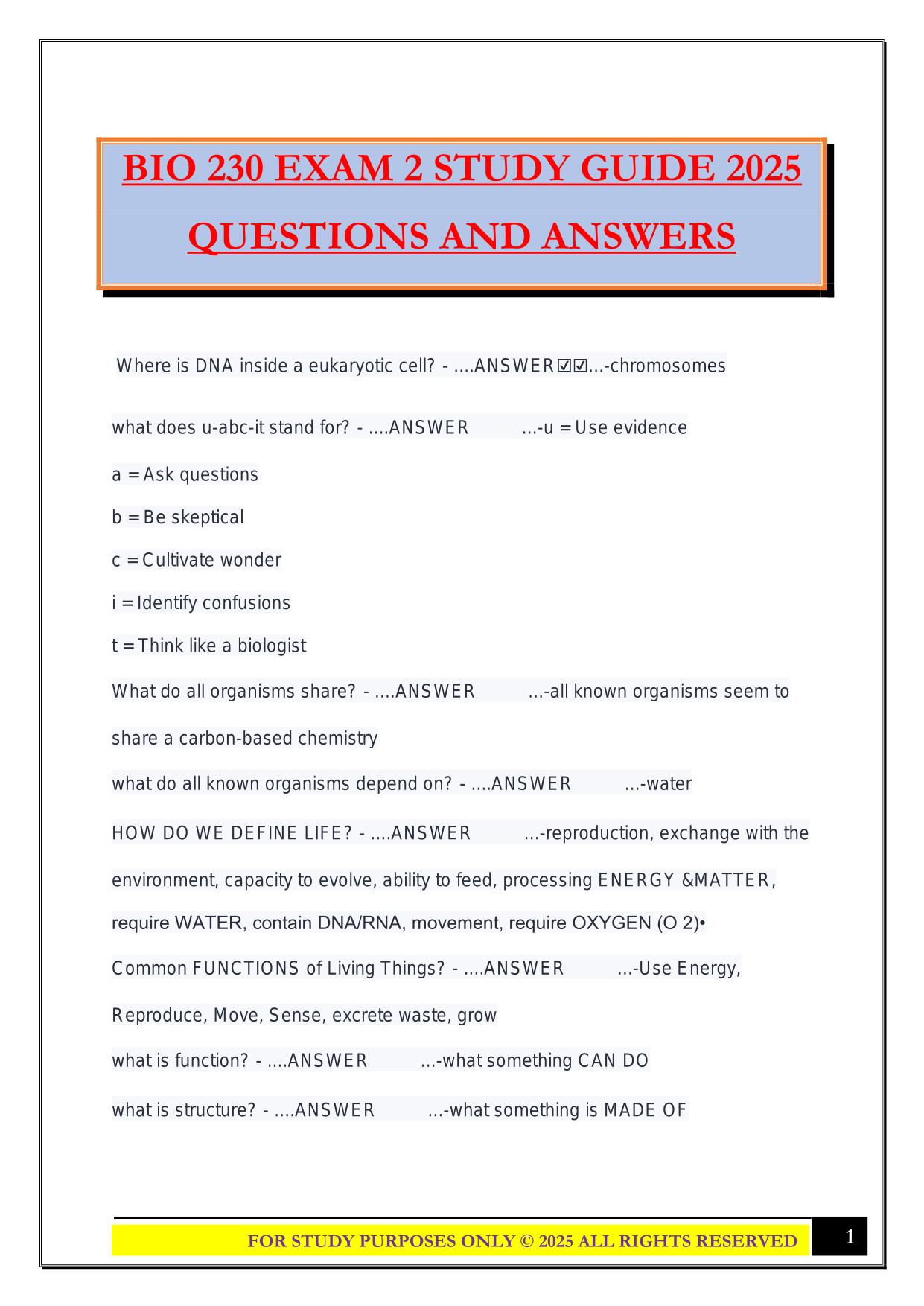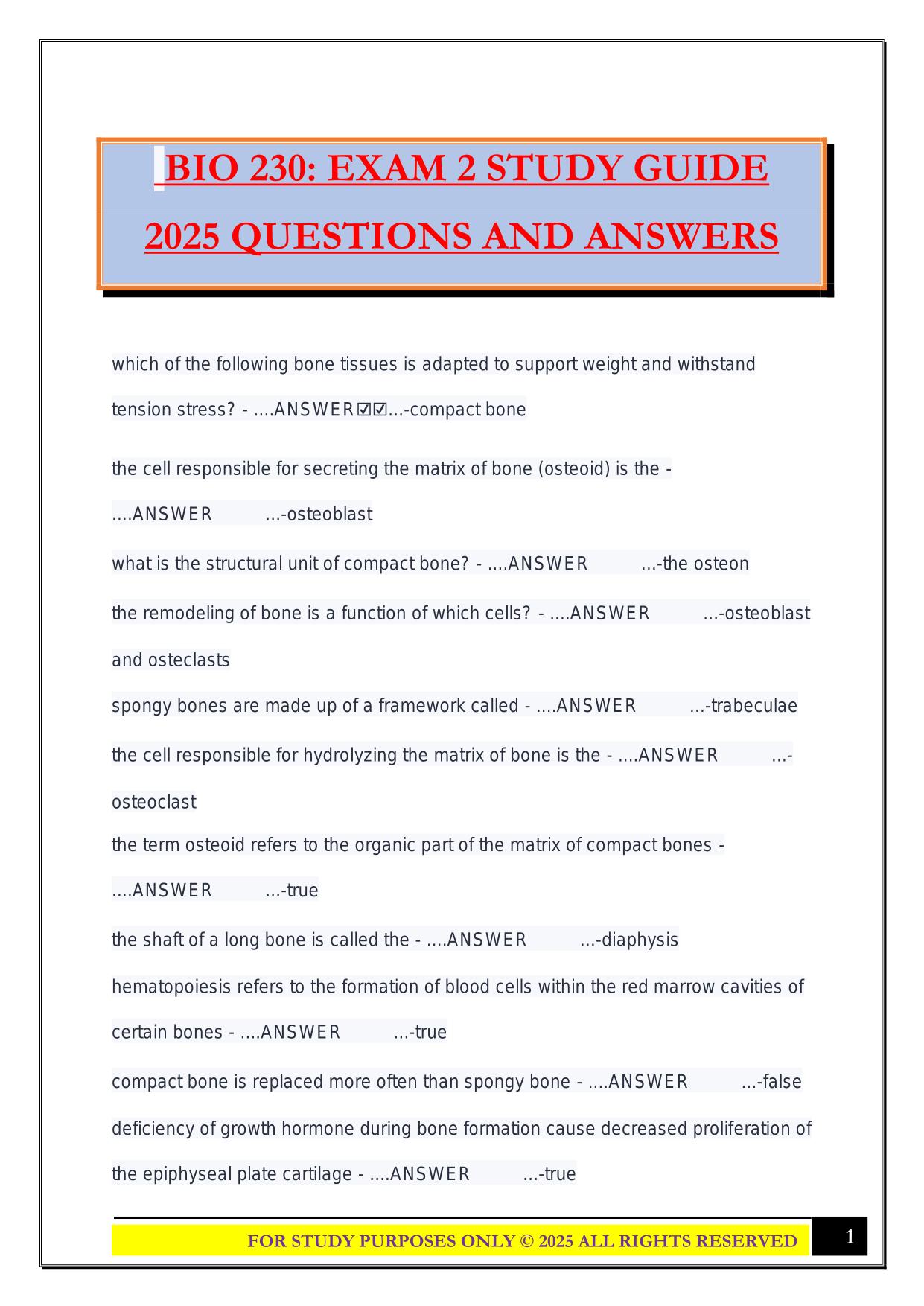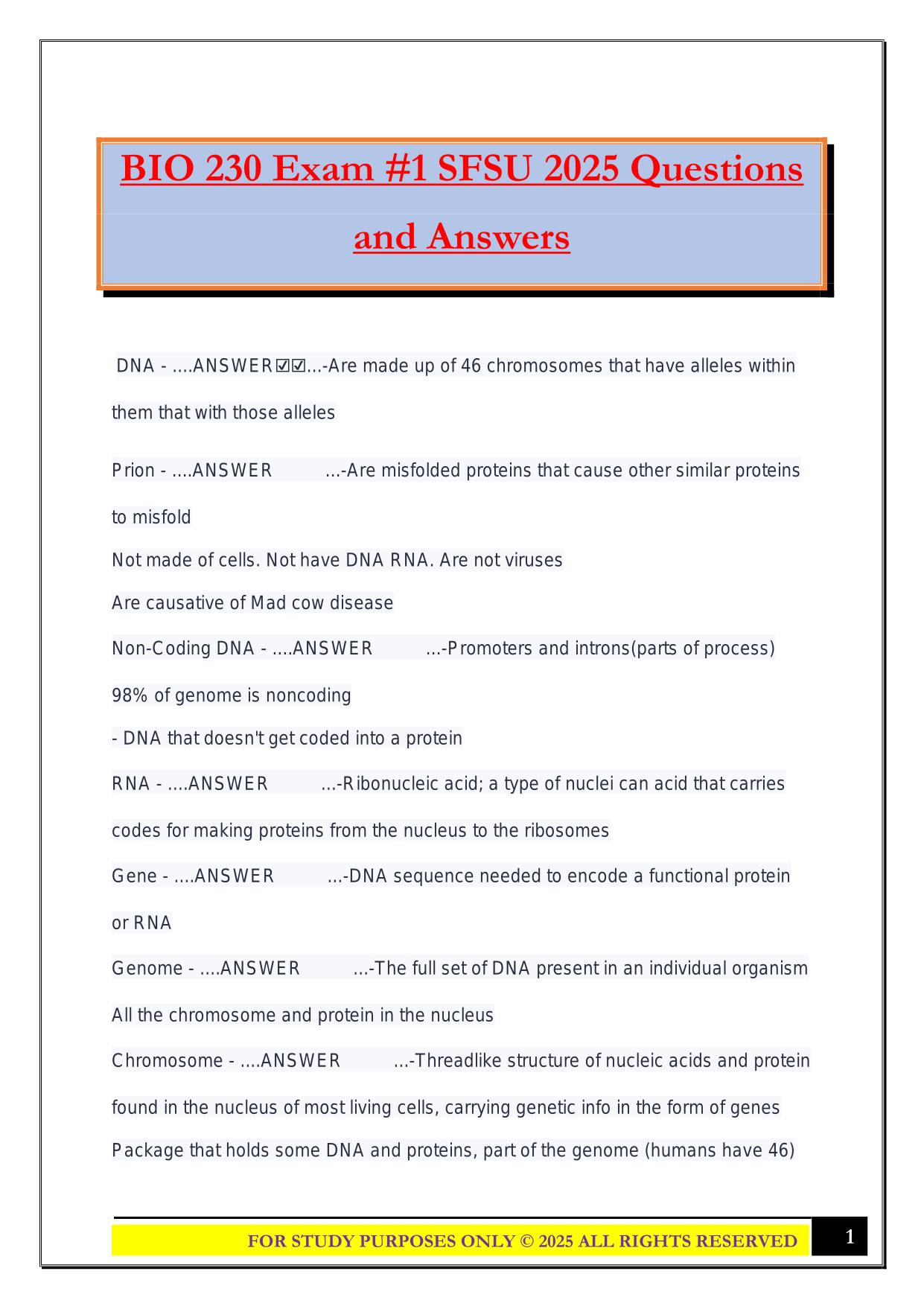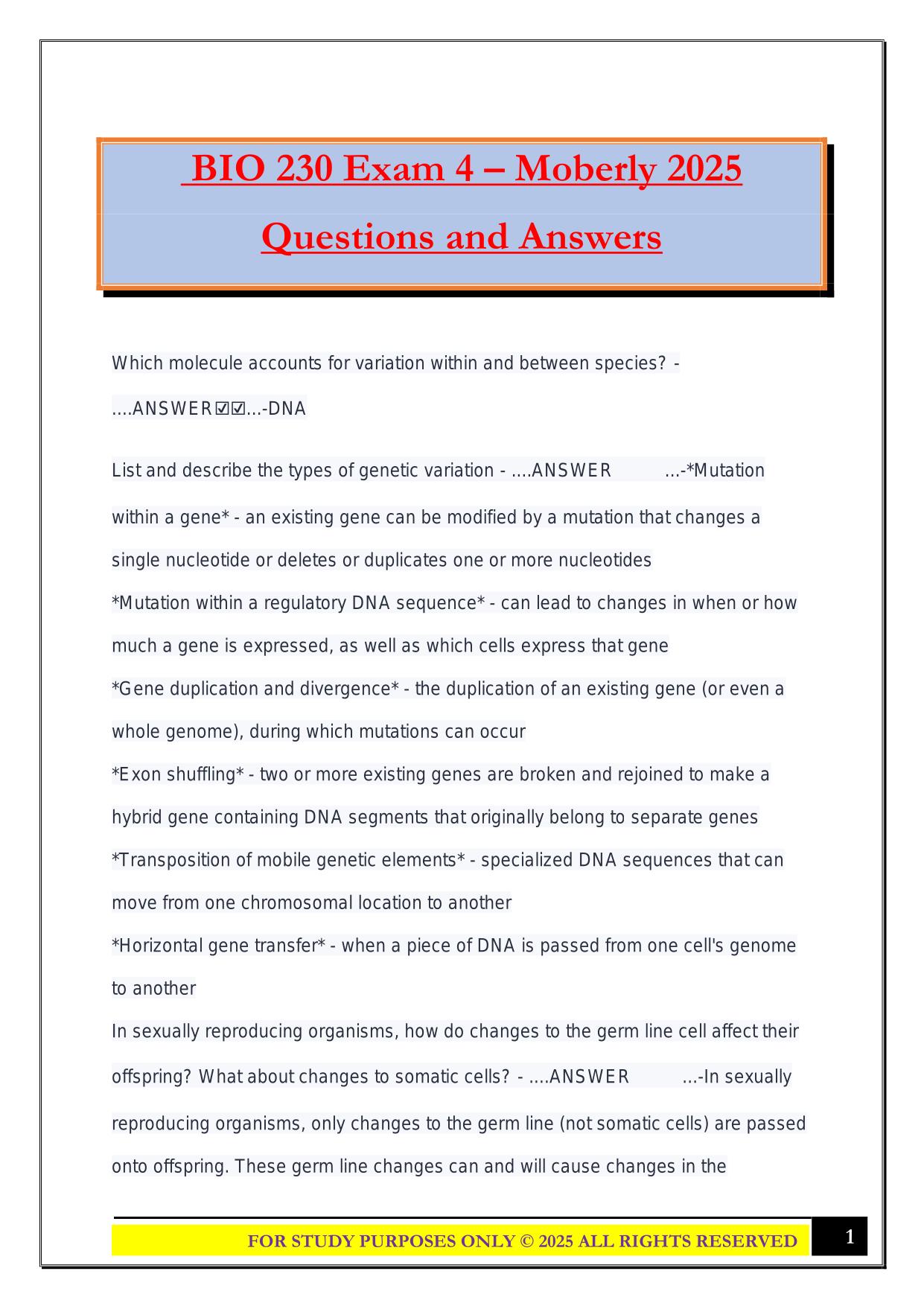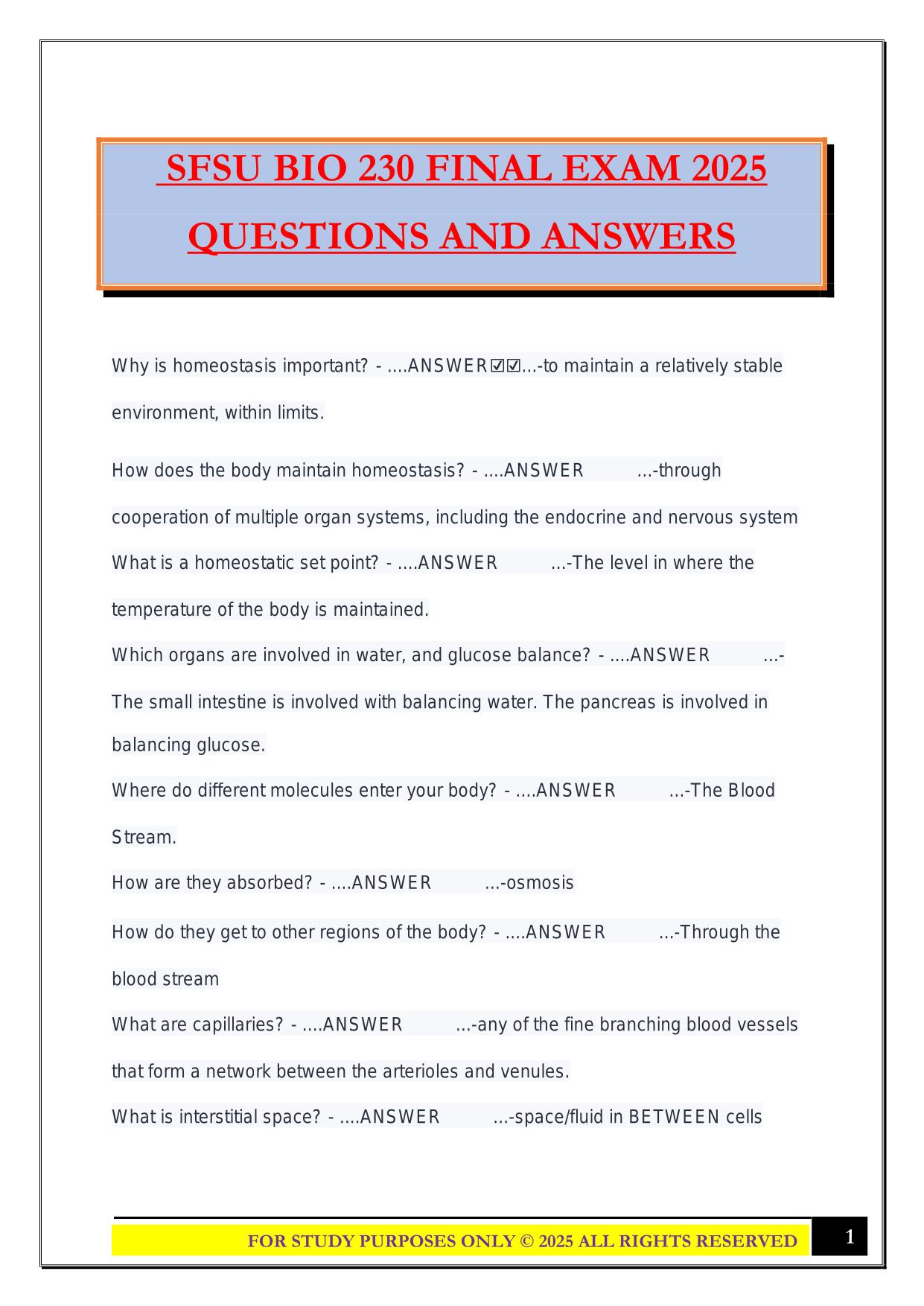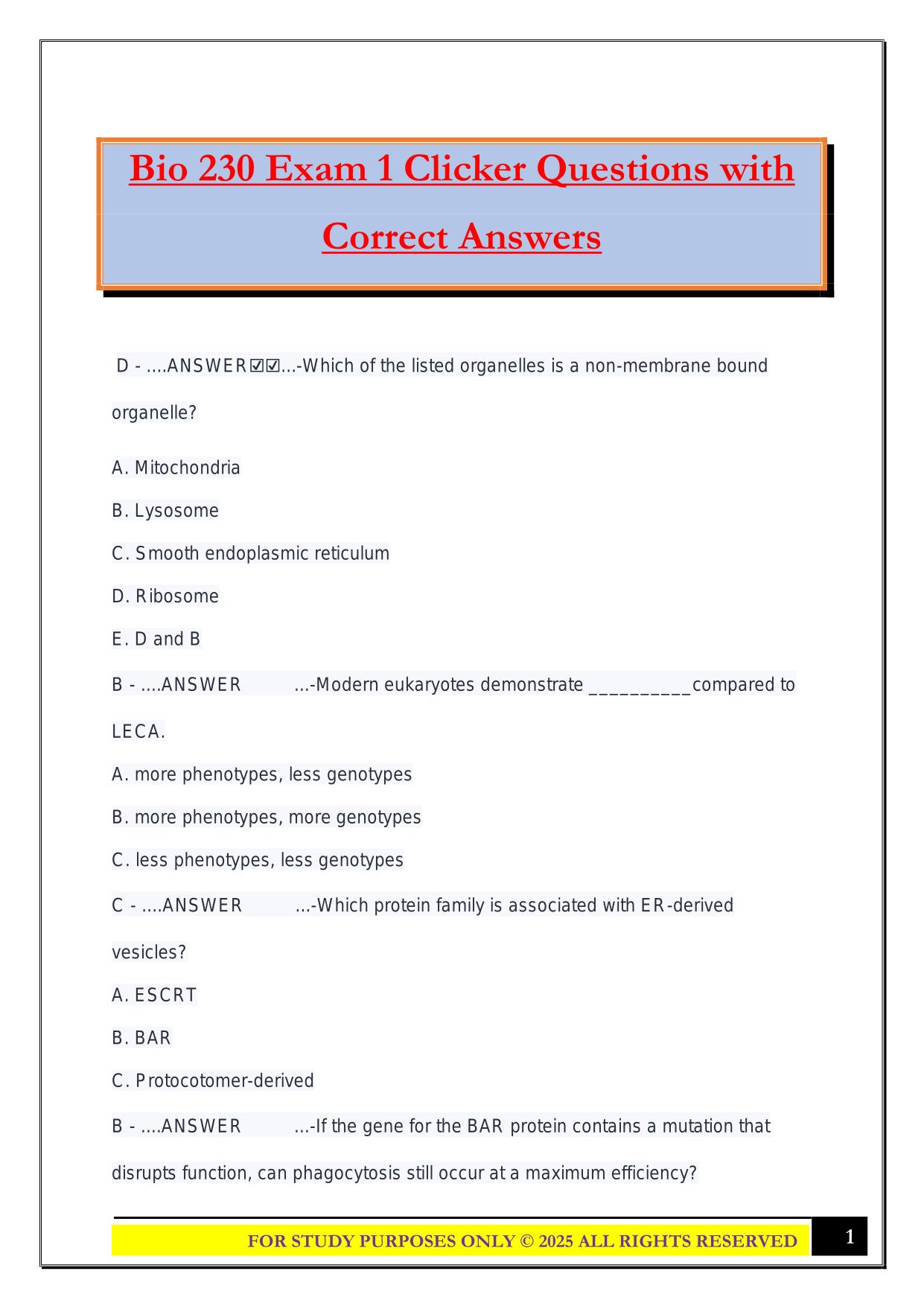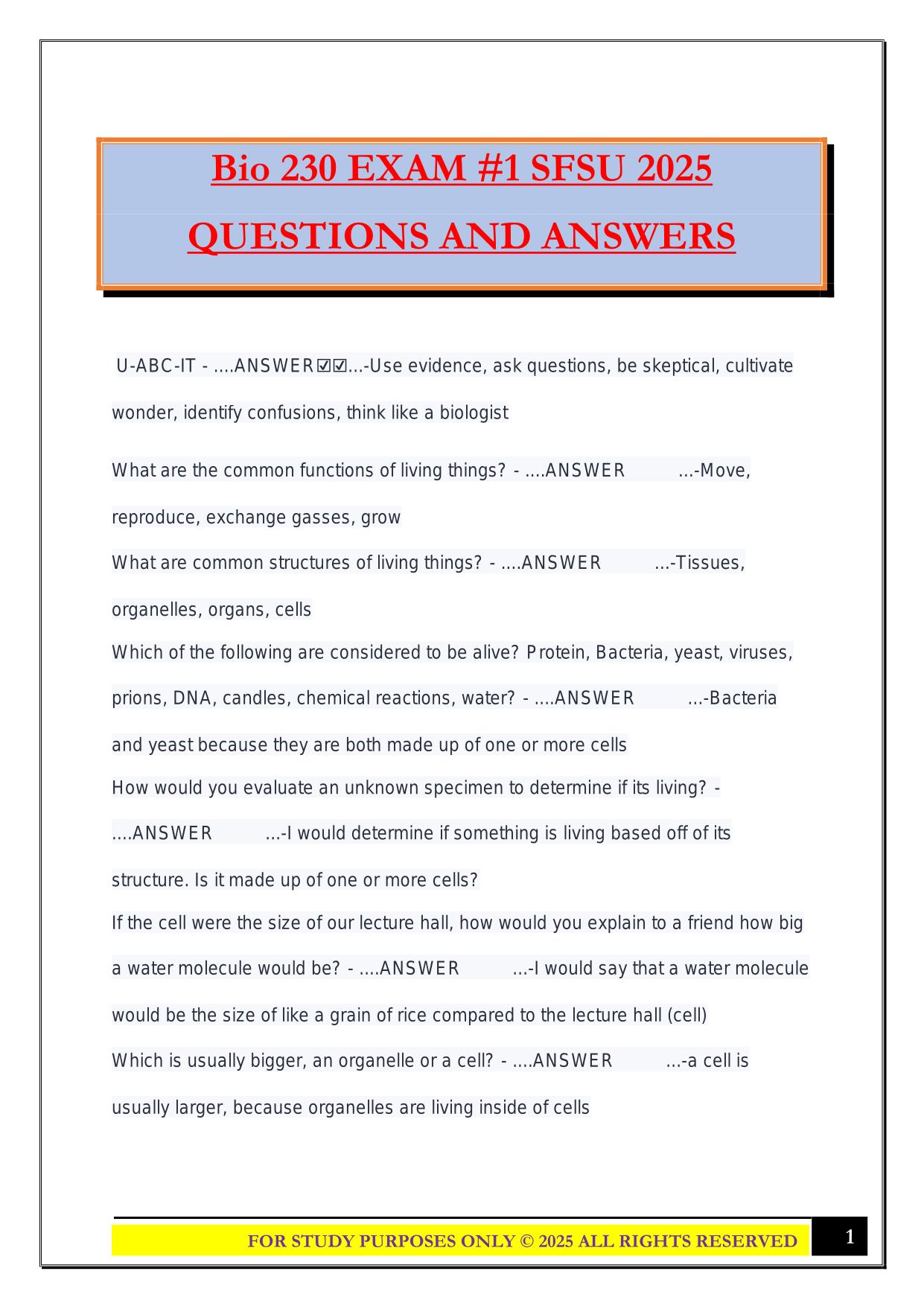BIO 230 Exam 3 – Moberly 2025 Questions and Answers
BIO 230 Exam 3 – Moberly 2025 Questions and Answers
Course:
Bio 230
Institution:
Bio 230
BIO 230 Exam 3 – Moberly 2025 Questions and Answers
After purchase, you get:
✅ Instant PDF Download
✅ Verified answer explanations
✅ Refund if not Satisfied
✅ Prepared for 2025/2026 test cycle
Document Information
| Uploaded on: | September 3, 2025 |
| Last updated: | September 7, 2025 |
| Number of pages: | 46 |
| Written in: | 2025/2026 |
| Type: | Exam (elaborations) |
| Contains: | Questions & Answers |
| Tags: | BIO 230 Exam 3 – Moberly 2025 Questions and Answers |
Seller Information

SophiaBennett
Reviews Received
User Reviews (0)
Exam (Elaborations)
$10.00
Bundle Deal! Get all 15 docs for just $24.99
Add to Cart
100% satisfaction guarantee
Refund Upon dissatisfaction
Immediately available after purchase
Available in Both online and PDF
$10.00
| 0 sold
Discover More Resources
Available in a Bundle
Content Preview
BIO 230 Exam 3 – Moberly 2025 Questions and Answers What do we call the physical carriers of genetic information? - ....ANSWER☑️☑️...Chromosomes When can chromosomes be seen? - ....ANSWER☑️☑️...-as eukaryotic cells prepare to divide Describe Frederick Griffith's experiment and the importance of it ....ANSWER☑️☑️...-He worked with Streptococcus pneumonia bacteria, which has a smooth S strain that secretes capsules and causes fatal infections in mice, as well as rough R strains that don't secrete capsules and causes fatal infections. The capsule shields the bacteria from the immune system. When mice are injected with heat-killed type S strain, they survive because the bacteria is dead. When injected with living type S strain, they die. When injected with heat-killed S mixed with live R strains, the mice die because their blood is found to contain living type S bacteria that is fatal. When this happens, transformation occurs because the living type R strains are transformed into the virulent type S cells by a substance from the heatkilled type S cell. This shows that genetic material had been transferred from the heat-killed type S bacteria to the living type R bacteria, giving them the capsulesecreting trait, which passed onto their offspring. Describe the Avery, MacLeod, and McCarty experiment - ....ANSWER☑️☑️...Avery, MacLeod, and McCarty added DNase (digests DNA), RNase (digests RNA), FOR STUDY PURPOSES ONLY ©️ 2025 ALL RIGHTS RESERVED 1
 US
US

